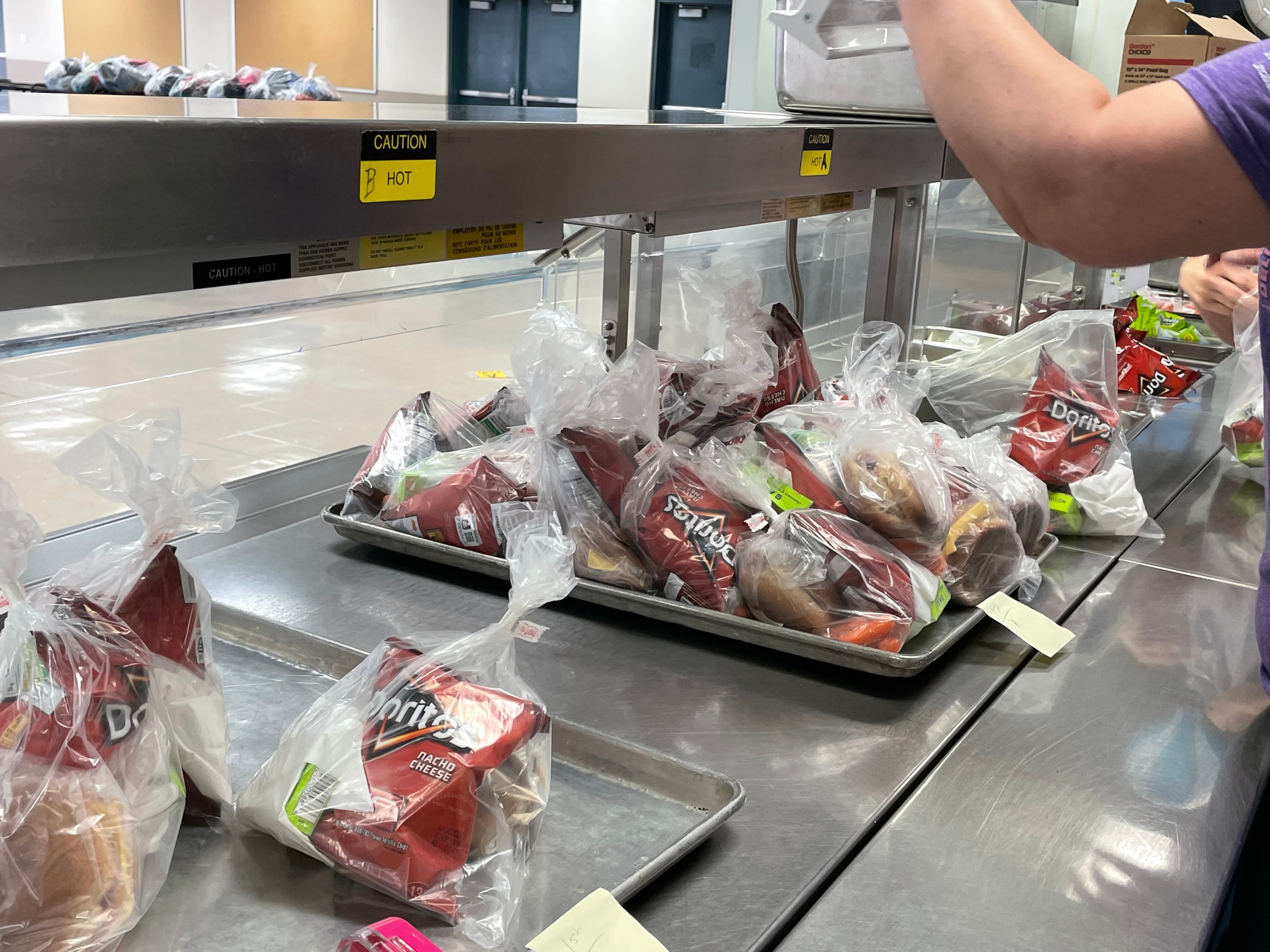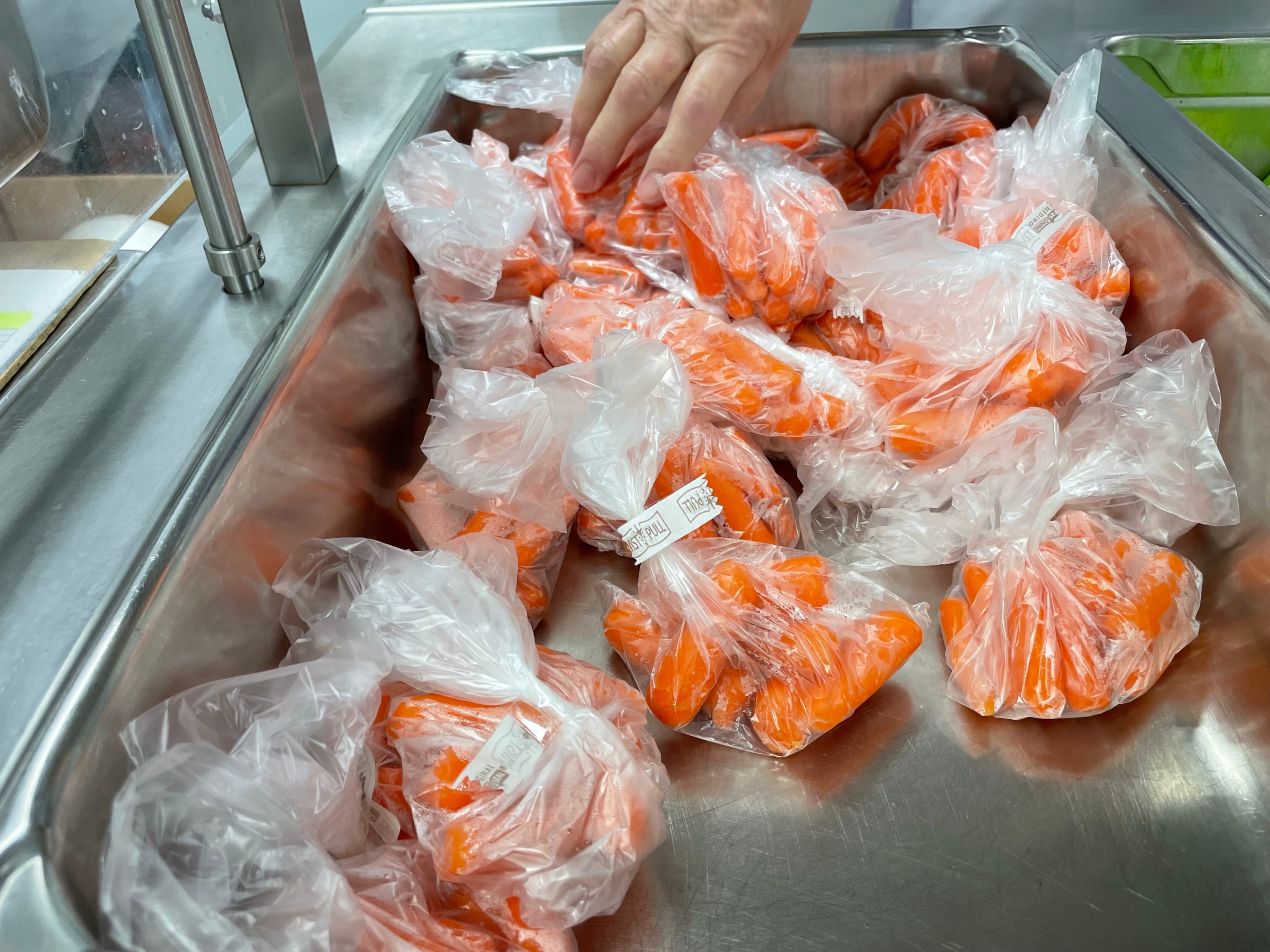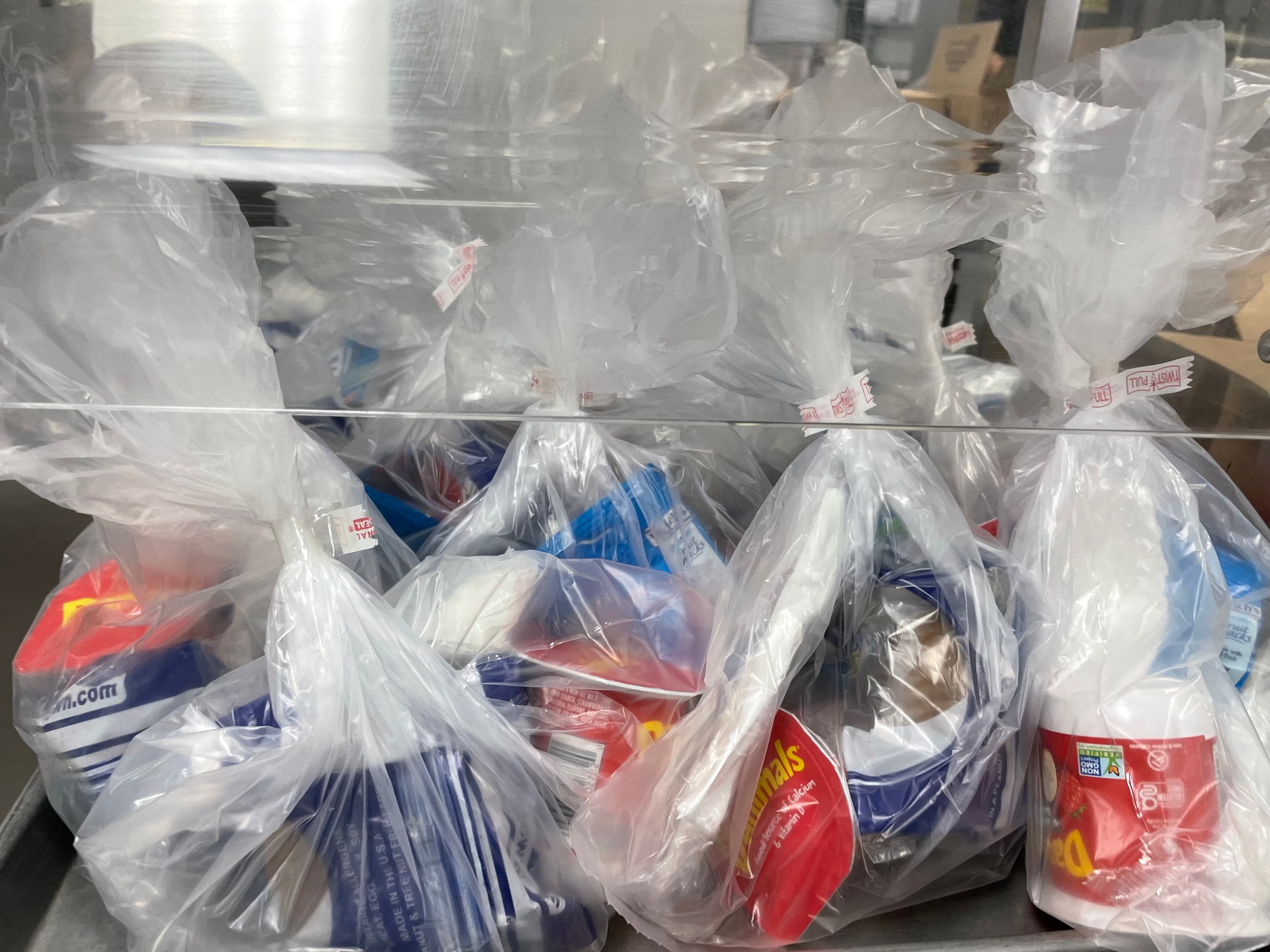Introduction:
School nutrition programs across the U.S. are placing greater emphasis on sustainability and operational efficiency. With increasing pressure to reduce food waste at schools and implement eco-friendly practices, schools are seeking innovative solutions that not only meet their operational needs but also align with their sustainability goals. Child nutrition programs, including the National School Lunch Program (NSLP), play a crucial role in reducing food waste and promoting sustainability by ensuring students have access to nutritious meals while minimizing waste. NGOs play a vital role in promoting better nutrition in schools, advocating for healthy meals, and supporting food safety initiatives.
Innoseal’s bag sealers offer a practical solution for schools looking to improve food safety, enhance efficiency, and reduce plastic waste. This blog explores the common challenges faced by school nutrition programs and how Innoseal can address them.

Section 1: Challenges in School Nutrition Programs
School kitchens handle large volumes of food daily, from fresh produce to pre-packaged snacks. School nutrition professionals play a crucial role in managing these operations and ensuring that students receive nutritious meals. The challenge lies in efficiently packing and distributing meals while ensuring food safety. Conducting food waste audits is crucial to determine how much food is wasted and to identify strategies to reduce wasted food. Schools also face increasing pressure to reduce plastic use while staying within tight budget constraints. Here are the main challenges:
-
Efficient Packing and Distribution: School nutrition programs must prepare and serve meals quickly, often across multiple locations. Catering for middle and high schools requires equipment that can streamline food packing and distribution to ensure students receive nutritious meals on time.
-
Food Safety and Packaging: Ensuring food safety is paramount, especially when dealing with allergens and dietary restrictions. Schools need tamper-evident packaging to prevent contamination and maintain hygiene from kitchen to classroom. Selecting eco-friendly packaging materials is also essential to support sustainability efforts.
-
Sustainability: Schools are expected to adopt eco-friendly packaging for food as part of their sustainability efforts. The challenge is to balance reducing plastic waste with cost-effective solutions that support their environmental goals.

Section 2: How Innoseal Bag Sealers Meet These Challenges
Innoseal’s bag sealers address these common pain points in school nutrition programs:
-
Efficiency in Food Packing:
With Innoseal, schools can streamline the food packing process, making it easier for kitchen staff to focus on preparing nutritious meals. The system’s ease of use ensures that both staff and students can quickly and securely package food items, reducing bottlenecks during busy lunch periods. -
Tamper-Evident and Resealable Packaging:
Food safety is critical in school settings. Innoseal’s tamper-evident seals ensure that food is protected from contamination, giving staff and parents peace of mind. The resealable feature also helps reduce food waste at schools by allowing students to save snacks for later, ensuring less food is thrown away.
Section 3: Sustainability Focus: Sustainable Packaging for Food and Reducing Plastic Waste
Reducing plastic waste has become a top priority in nutrition programs for schools, and adopting an eco friendly packaging solution is a key strategy in achieving this goal. Innoseal helps schools meet their sustainability goals by offering a packaging solution that uses less plastic than traditional methods. Here’s how:
-
Less Plastic, More Sustainability:Innoseal’s innovative design uses a minimal amount of tape, reducing the overall plastic used in packaging. This means that schools can significantly cut down on waste while still maintaining food safety standards.
-
Reusable and Recyclable Materials:The sealing tape used by Innoseal is both reusable and recyclable, making it an ideal choice for schools looking to adopt sustainable packaging for food. By using eco-friendly packaging, schools can align with broader initiatives to promote environmental responsibility.

Section 4: Partnering with NGOs to Improve School Nutrition
NGOs advocating for healthier and more sustainable school nutrition programs play a key role in driving change. By ensuring that all students have access to nutritious school meals, NGOs can help reduce food waste and promote healthier eating habits. By integrating Innoseal’s eco-friendly, tamper-evident packaging solutions into school kitchens, NGOs can further support schools in improving food safety and reducing plastic waste.
Innoseal’s system also contributes to reducing food waste by ensuring better portion control, allowing students to preserve their meals for later. This reduces the likelihood of throwing away uneaten food, directly addressing the question of how to reduce food waste at schools. NGOs can leverage Innoseal as a reliable partner in supporting sustainability and nutrition goals.
Conclusion:
Innoseal’s bag sealers offer a practical, sustainable solution for school nutrition programs. From improving food safety and reducing waste to aligning with sustainability initiatives, Innoseal helps schools achieve operational efficiency while promoting environmental responsibility. As schools and NGOs continue to seek innovative ways to cater to students, Innoseal is ready to play a pivotal role in transforming school nutrition programs across the country.
If you’re an NGO or educational organization looking to improve food safety and reduce food waste in schools, consider partnering with Innoseal to explore how our packaging solutions can support your mission.


